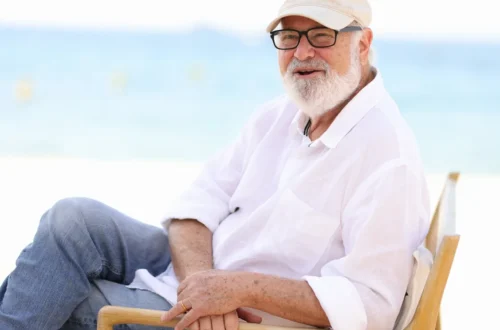Jane Goodall, the British primatologist whose groundbreaking work upended our understanding of chimpanzees and reshaped humanity’s sense of kinship with animals, has died at the age of 91. Her departure marks the end of a life lived in deep communion with wild nature, a life of inquiry, advocacy, and boundless compassion.
From the moment she arrived at Gombe Stream in Tanzania in the early 1960s, Goodall brought a radical new vision: that wild chimpanzees are not instinct-driven automatons, but individuals with personalities, emotions, and relationships. She observed tool use, hunting, and even violence among chimps—behaviors once thought to be exclusively human. Over more than six decades, she became a global ambassador for conservation, wildlife rights, and ecological stewardship.
Her early work was lonely, daring, and uncertain. Without formal scientific credentials in primatology, she camped by the Gombe wilderness, watching, waiting, scribbling notes, earning trust. Over time, “Fifi,” “Flo,” “David Greybeard,” and others became household names among those who followed her research. She taught us that the divide between ourselves and chimpanzees was smaller—and far more fraught—than many believed.
But Goodall was not content to remain behind a microscope or in the shade of the forest. She founded the Jane Goodall Institute, launched the Roots & Shoots youth program, and used her fame as a moral megaphone to speak about deforestation, climate change, species extinction, and the need for coexistence. She traversed continents, meeting world leaders and elementary school students alike, urging action rooted in empathy and science.
Friends and colleagues remember her as alternately fierce and gentle, tireless in her missions, and ever humble in her discoveries. She believed deeply in hope, even when hope felt like a fragile ember against a backdrop of cascading ecological crisis. She insisted on naming individual chimps because she believed it changed how people relate to them—not as faceless animals, but as beings with dignity.
In her later years, Goodall became a fixture in media, documentaries, and popular culture. She wore her silver hair like a banner of experience, her eyes alight with curiosity. Interviews often found her soft-spoken but unsparing: humans, she said, must change their habits, protect habitat, and shift from domination to guardianship. She insisted the next generation deserves better.
Her passing will send ripples through the scientific, environmental, and conservation communities. Thousands of projects around the world, in forests and urban settings, have drawn inspiration from her methods and her ethos. The sanctuaries she supported, the young activists she empowered, the sprawling network of Roots & Shoots chapters—all stand as part of her legacy.
As news spreads, condolences and reflections pour in from every continent: chimpanzee researchers who followed in her footsteps, environmentalists who saw her as a godmother figure, political leaders who worked with her on forest protections, and ordinary people moved by her message that “what you do makes a difference—what you do matters.”
It is tempting to remember Jane Goodall as a figure of mythic stature—but she always resisted mythologizing. She joked about her wrinkles, spoke candidly of doubts and missteps, and maintained that she was always a student, learning, evolving. She would rarely accept praise without turning it into a call to duty: to protect species, to nurture children’s connection to nature, to plant trees, to care for the soil, to be kind.
In the forests of Gombe, those chimpanzees she first met live on, generations unfolding. In the hearts of those she inspired, her flame burns still. For Jane, end was never simply an ending—her work, her voice, her vision were meant to outlast her mortal years. And so she will be remembered not primarily by the date of her death, but by the stories she told through a lifetime of witnessing: stories of wildness, of kinship, of what is possible when one person listens.




